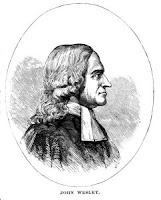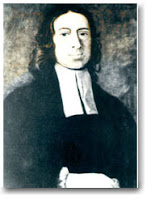
AUGUST 16
I cannot easily part with those I love.
Letter, 22nd October, 1777
They (the Methodists) have many schools for teaching, reading, writing and arithmetic, but only one for teaching the higher parts of learning. This is kept in Kingswood, near Bristol, and contains about forty scholars.
. . . . . . . . . .
Each preacher has his food wherever he labours and twelve pounds a year for clothes and other expenses. If he is married, he has ten pounds a year for his wife. This money is raised by the voluntary contributions of the Societies. It is by these likewise that the poor are assisted where the allowance fixed by the laws of the land does not suffice. Accordingly the stewards of the Societies in London distribute seven or eight pounds weekly among the poor.
. . . . . . . . . .
There are only three Methodist societies in America. … There are five preachers there.
to Professor John Liden of Lund, 1769





















